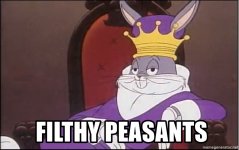There's a linguist at North Carolina State U. who makes a strong case that a lot of regional language dialects, including double (and more than double) negatives, are distinct language systems that have their own rules. But once you learn them, you know exactly what the people are saying. So in terms of standard English, they are incorrect, but for human communication within their communities they are exacting and precise as any. You can squabble about this; some groups are more effectively communicative than others. But the basic point, I think, is sound. He does great presentations with videos including speech by Outer Banks residents who are said to still have the marks of Elizabethan English in their speech, as well as various rural and/or minority communities. For those who take pride in their cultivated standard English, this may be annoying, but there is truth in it.
This is certainly the case. Sometimes it seems that the purpose of double (and more) negatives is to emphasize the original negative. For example, "He don't got none at all, no he don't." That would just be emphasizing that he most certainly does not have any. It's not that he just doesn't have any. He definitely doesn't have any.
It's still fun to joke around about though










